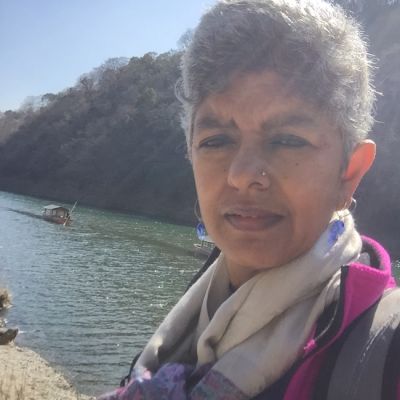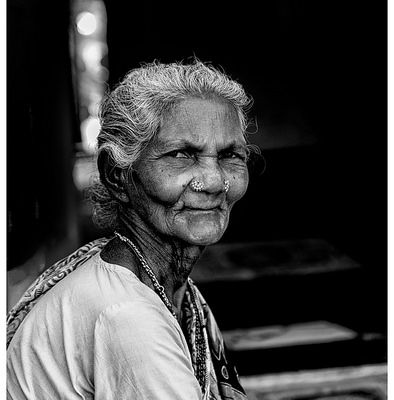Categories
How does one negotiate the “delicate and complex” terrain of giving, receiving and respecting consent, and safely and effectively express sexual desire?
You speak in so many tongues to me as you journey languorously down my body.
Feminist, activist, writer, counsellor and trainer, Nandini Rao, focuses on issues of gender-based violence and discrimination, sexuality and disability and on incest and child sexual abuse.
Typos are speed breakers, and autocorrect has kinky preferences
A basic analysis of the most powerful swear words reveals that the vast majority are somehow related to sex (as in the act) or sexuality.
सेक्शुअलिटी को हिंदी में यौनिकता शब्द से संबोधित करते हैं, ये शब्द भी अपने आप में बहुत कुछ कहता है।…
Many queer Indians who converse largely in their respective regional languages find it difficult to put a name to their queer identity in their ‘mother tongue’.
What if each letter of the alphabet represented a powerful feminist concept?
While there have been many music videos objectifying women where they are shown to be given favours by men, it is amazing to note that even in a song where a woman is being refused the ‘gifts’ she seeks, the objectification of women persists.
In our mid-month issue we have an interesting medley of articles many of which talk about the memory of and in the body. Rashi Kapoor presents a therapist’s perspective on body memory and healing, Debanuj Das Gupta offers us a deeply personal and political insight into AIDS, melancholia and queer memory…
Sudha ji’s indomitable spirit made me question if I was settling down for too little, if there was more that I should ask for, and if there is more that I deserve.
“I was not a wanted child. Of course I am a girl, and that explains it. It’s like no one really cares if I exist. My brothers are useless, but they are everything to them(her parents). It’s not like he (her lover) needs me either; I still take food for him everyday.”
If not for these memories, my exploration of sexuality would perhaps have stopped a few years ago, when I was single for a long time and didn’t know if I could find someone like me.
In this essay, I revisit my early struggles with AIDS diagnosis during the summer of 2003. The recollections allow me to rethink how the New York cityscape and coming out about my HIV status to my parents in India shapes a racialised experience with HIV and AIDS, family relations, and transnational migration. Such a racialised experience is erased within Tony Kushner’s Angels in America.















